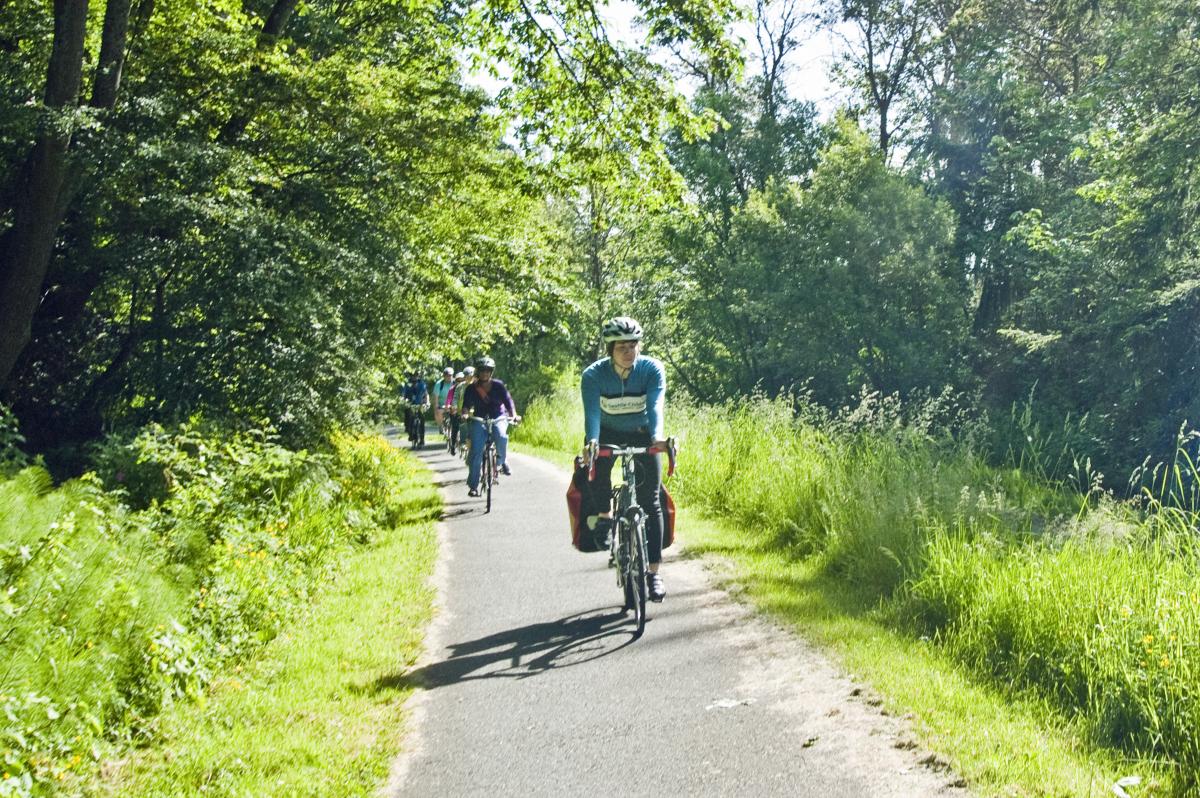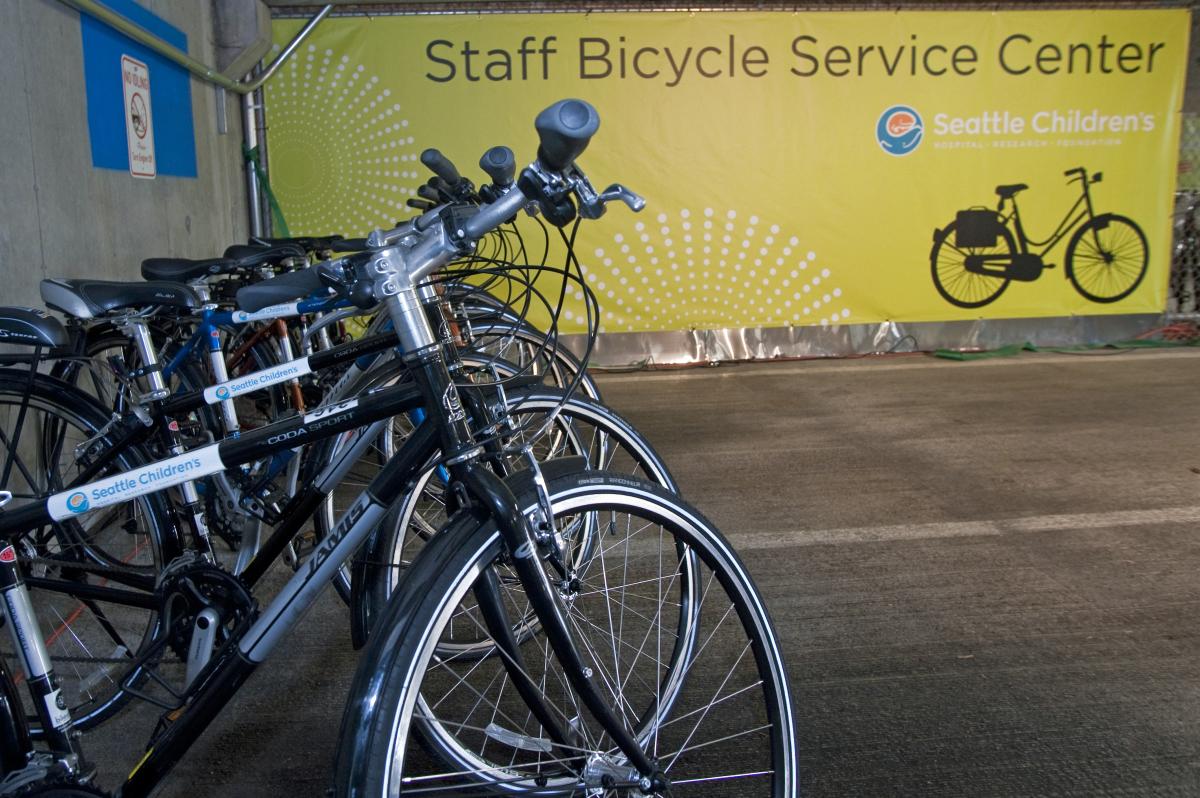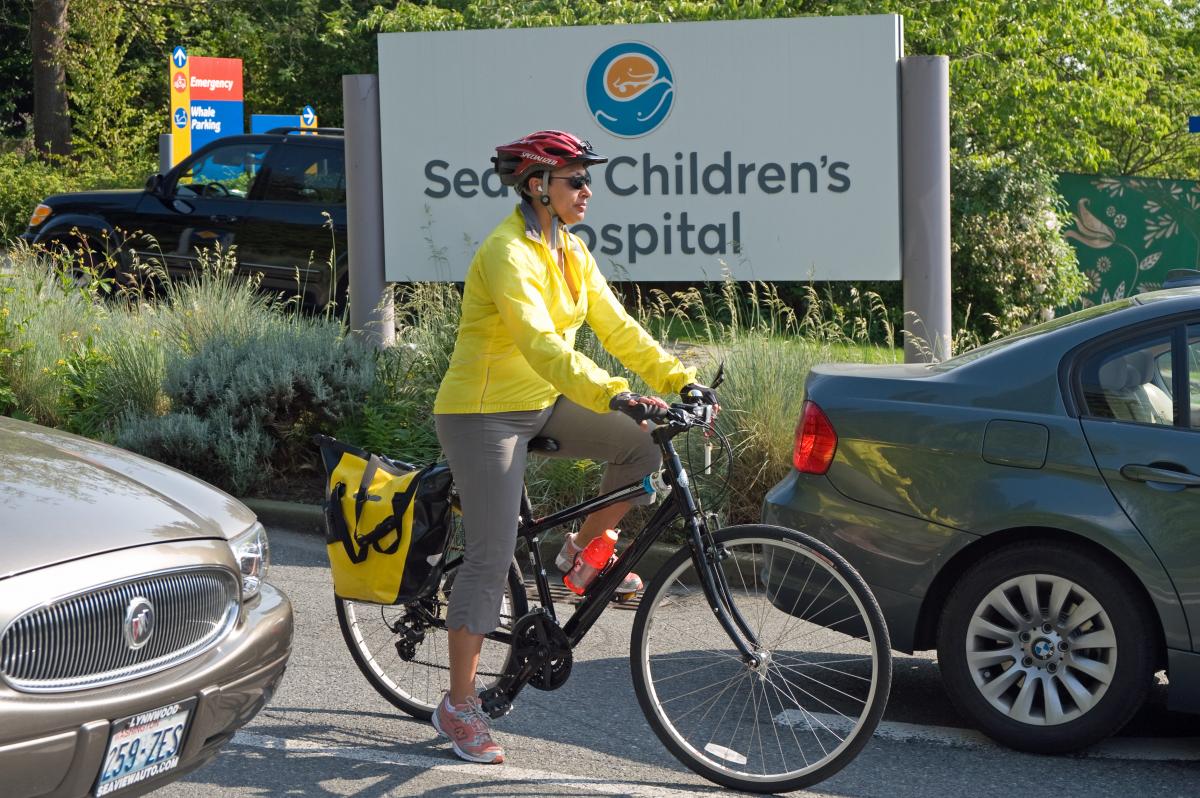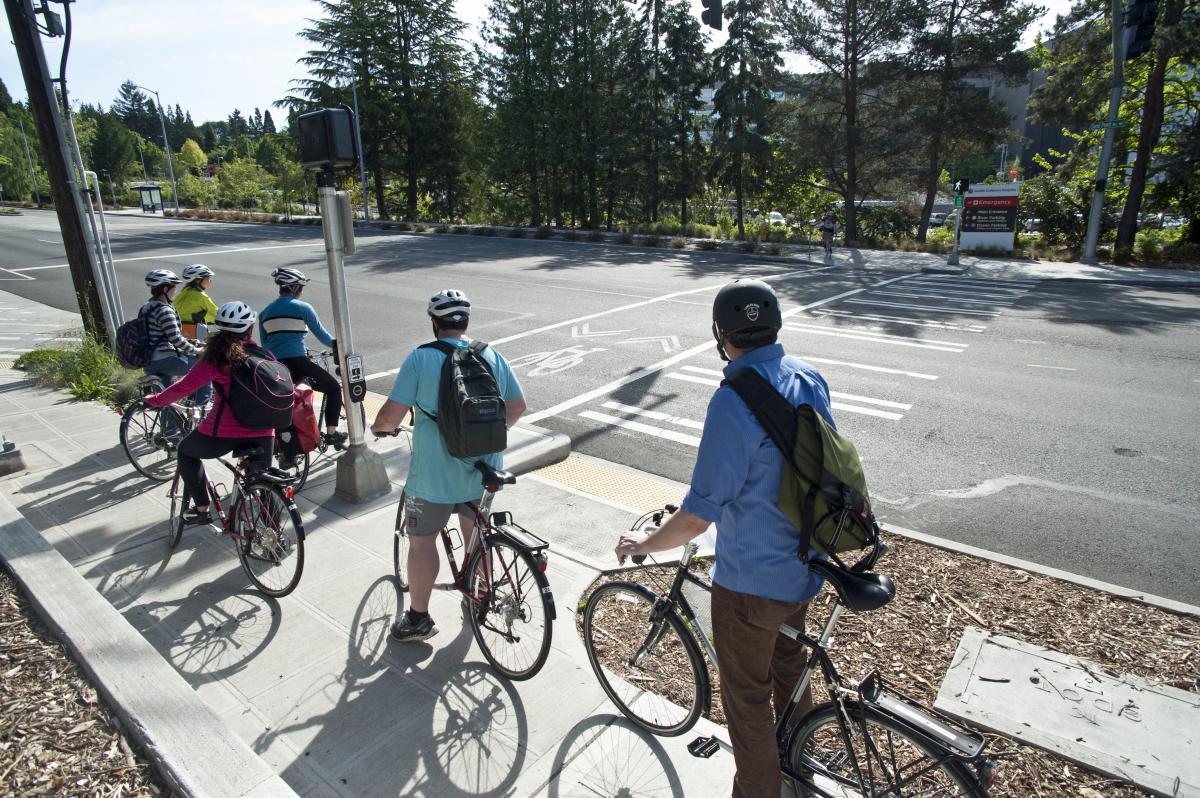DISCOVER YOUR LOCAL BICYCLING COMMUNITY
Find local advocacy groups, bike shops, instructors, clubs, classes and more!
BFB Spotlight: Seattle Children’s Hospital
If you ask League Bicycle Friendly Business staff what the most surprising and encouraging trend from recent rounds of awards is, they’re quick to shout, “hospitals!”
Several hospitals across the United States are providing patient care in new and innovative ways by bike — and they’re encouraging and supporting the health and wellness of their employees by offering bike commuting classes, incentives to ride and more.
One hospital that stands out among all the Bicycle Friendly Businesses is Seattle Children’s Hospital, which is a new Platinum-level BFB. They’re using bicycles to boost the health of employees and the experience of patients in many ways.
“Seattle Children’s has long been at the forefront of sustainable transportation; we pay a daily bonus to incentivize staff to leave their cars at home, provide one of only a few on-site staff bicycle service centers in the nation, offer staff access to free commuter bicycles and helped launch Seattle’s bike share system by serving as its first business sponsor,” said Jamie Cheney, Seattle Children’s Transportation Director. “We promote bicycling because we believe it is good for the health of our patients, staff, community and the planet. Seattle Children’s is delighted to be recognized with the League of American Bicyclists’ highest honor, the Platinum-level Bicycle Friendly Business Award.”
This week, we’re sharing some highlights from our latest round of 161 new and renewing Bicycle Friendly Businesses. Today, we take a deeper dive on the strides Seattle Children’s Hospital has taken. The following excerpts are from their application to the program.
Bike-Minded Orientation for New Employees

Seattle Children’s Transportation Department reaches out to every new employee with a customized “commute packet” before they even start their job. The packet has information about commute options from that person’s home address to their work site. If a new employee lives along a well-used bike route such as the Burke-Gilman trail, the packet includes a Seattle bike map and a Children’s bike map showing where end-of-trip facilities are located at their worksite. The hospital’s commute philosophy is reinforced during new employee orientation every Monday, where a transportation expert highlights our unique bike program and explains why it’s so important to Children’s that its staff members get to work without driving alone. After orientation, Children’s entire Transportation department is available to answer questions and help staff members plan their commutes. This strategy is very effective at encouraging more new employees to consider biking to work.
Every other year, Children’s Transportation Department sends individual commute statement summaries to staff members so they can compare their commute behavior over time, and see exactly how much they earn in commute bonuses and how much they pay to park. Through a new business website platform, Luum, the department has been able to encourage alternative commute behavior through mode-specific, month-long, customizable virtual commute challenges and campaigns complete with virtual badges, leaderboards, and teams.
Company Bike Program & Staff Bicycle Service Center

Our Company Bike fleet is 228 bikes strong! We check out bikes to employees who commit to riding to work an average of at least twice a week, and they keep the bike as long as they keep that commitment. Our company bicyclists receive lights, a lock, a helmet, and a Jamis Coda Sport bike that includes fenders, an ergonomic seat, upgraded pedals, handlebars/grips, a kickstand and a rack.
Company bicyclists are required to take a two-hour Bike Commuting 101 class, and they receive one-on-one assistance, personalized route planning and other support. In 2014, our company bicyclists made more than 15,000 bike commute trips (and who knows how many more personal trips, which we don’t track). More than 733 employees have taken part in the program since it launched in 2008. Company bicyclists ride to work for 60% of their total commute trips with a drive alone rate of only 13%. Seventy percent of Children’s Company Bike riders are women. In addition, Children’s has 10 “errand bikes” that employees can check out for short-term use.
In addition, Seattle Children’s is one of only a handful of companies in the nation that offer an onsite bike shop for employees with free maintenance and discounted cycling gear open three days per week, year-round. Though Children’s has offered onsite bike maintenance from mobile bike mechanics for years, the Staff Bicycle Service Center expands this offering by bringing a comprehensive bike shop to campus, all under one roof.
Bike Incentive Program: Paying Employees to Ride

The cornerstone of our commute program is a commute bonus: employees receive $4 every day they don’t drive alone to work. This adds up to about $1000/ year for dedicated alternative commuters. The commute bonus works in concert with our daily parking fee structure; parking costs up to $10 per day for single-occupancy vehicles during peak commute hours. At Children’s main campus, we reserve most onsite parking for patients and families so most employees who choose to drive alone have to park at a satellite lot and ride a shuttle to work. This allows the hospital to use limited on-site parking spaces for mission-critical needs.
Children’s also offers employees deeply discounted transit passes. For $6 a month, employees can take unlimited trips on buses, light rail, commuter rail and water taxis (the cost of transit in our region is between $5 and $11.50 per round-trip). Most transit in the Seattle area accommodates bicycles, making mixed-mode commuting easy for staff members who live too far to bike all the way to work, or who only want to bike in one direction. Employees also receive discounts of 10% to 30% on products at a half dozen local bike shops.
Our regional bike share system, Pronto Cycle Share, launched in October, 2014, with Children’s as its first major sponsor, ensuring that the program would include the hospital in its service area. Because we are sponsors, Children’s employees receive free annual bike share program membership.
Participation in National Bike Month
Children’s most successful commute trip reduction event occurs each year in May, National Bike Month. Children’s avidly participates in Cascade Bicycle Club’s annual virtual Commute Challenge and consistently finishes among the top three organizations in many categories, including the overall number of participants, number of new cyclists, number of bike trips, number of miles biked, and number of bike teams formed. We offer a $50 bonus to everyone who captains a team with at least four riders, each of whom must complete at least four trips during May.
Minimizing the Impact on the Local Community

As part of a 20-year expansion plan, Seattle Children’s made a commitment to its neighbors and the City of Seattle to reduce the percentage of staff driving alone to work to just 30% by 2030. The plan calls for 10% of the hospital-based workforce to commute by bike.
One strategy we used to reach this goal was to enhance the livability of our neighborhood. Children’s pledged to spend nearly $4 million on pedestrian, bicycle, and other transportation projects in northeast Seattle as part of our Livable Streets Initiative. The first phase was completed in June 2014 and included one of Seattle’s first Neighborhood Greenways, an ADA-accessible path that provides a new and safe link to the nearby Burke Gilman Trail, and a two-way cycletrack along the front of the hospital.
“Growing the number of employees commuting by bike not only reduces our environmental footprint and contributes to the health and wellness of our staff, but it also allows Seattle Children’s to increase our capacity and ability to provide world-class healthcare to every child in the region who needs us,” said hospital president Lisa Brandenburg, herself a bike commuter. Currently, more than 8% of Seattle Children’s main campus workforce commutes by bicycle.
By supporting cycling and reducing the drive-alone rate of our staff, Children’s is helping to reduce the organization’s impact on our community and the patients and families we care for by reducing traffic congestion and our collective CO2 emissions. Ultimately, this has a positive impact on Children’s patients who suffer from respiratory diseases (last year, asthma-related illness was the top reason patients were admitted to Children’s). More staff members commuting by bike means that fewer are driving alone to work. All of this means that Children’s can devote less money and space to parking lots and more to serve the clinical needs of our patients and families.